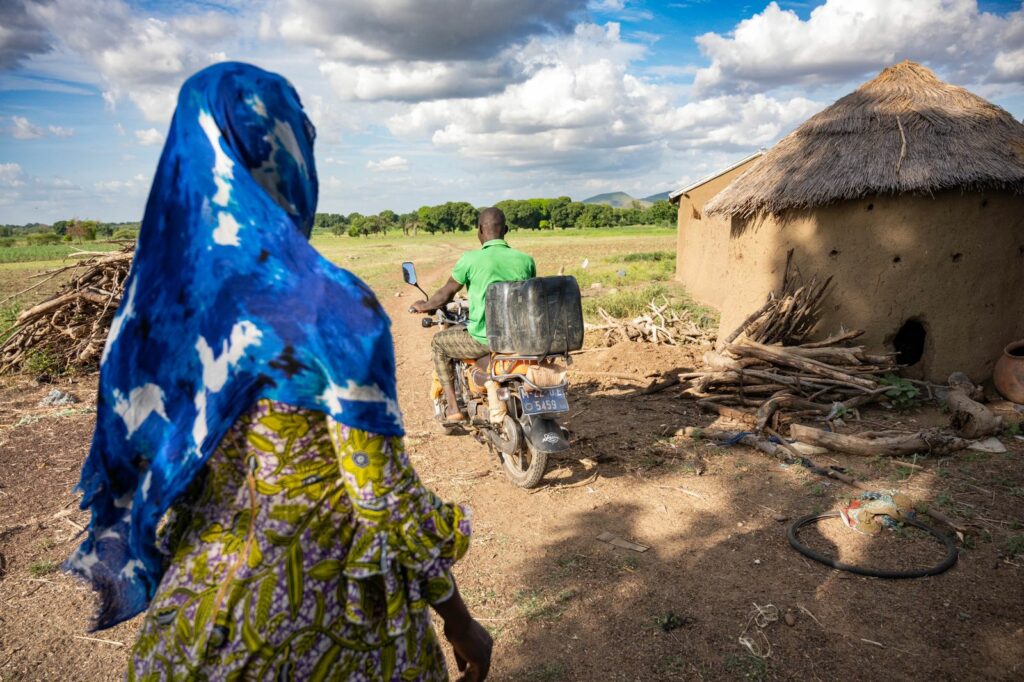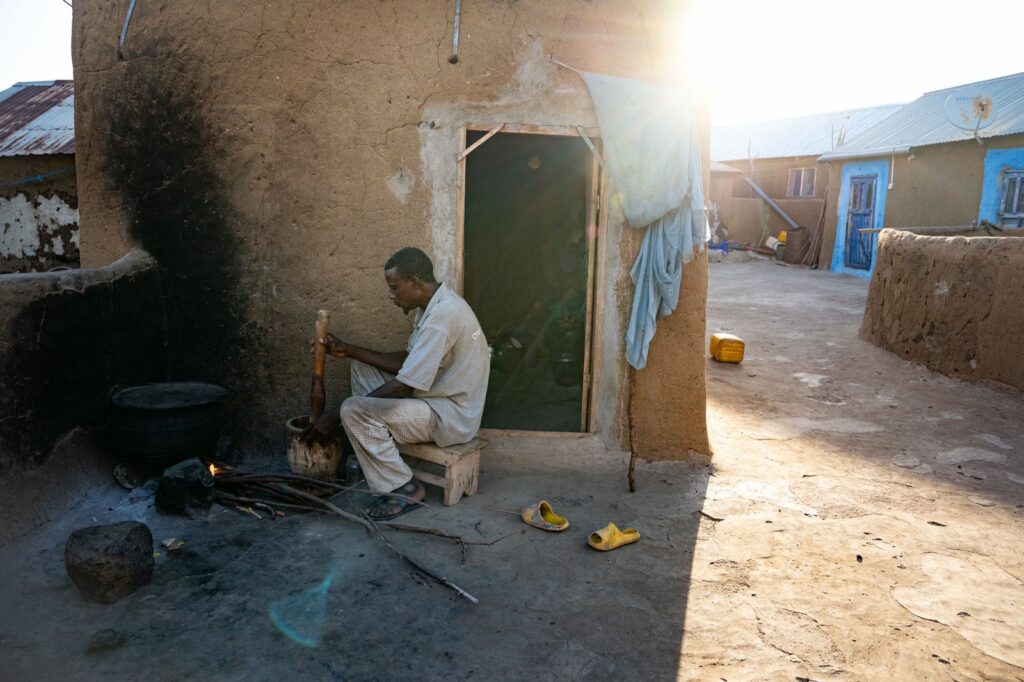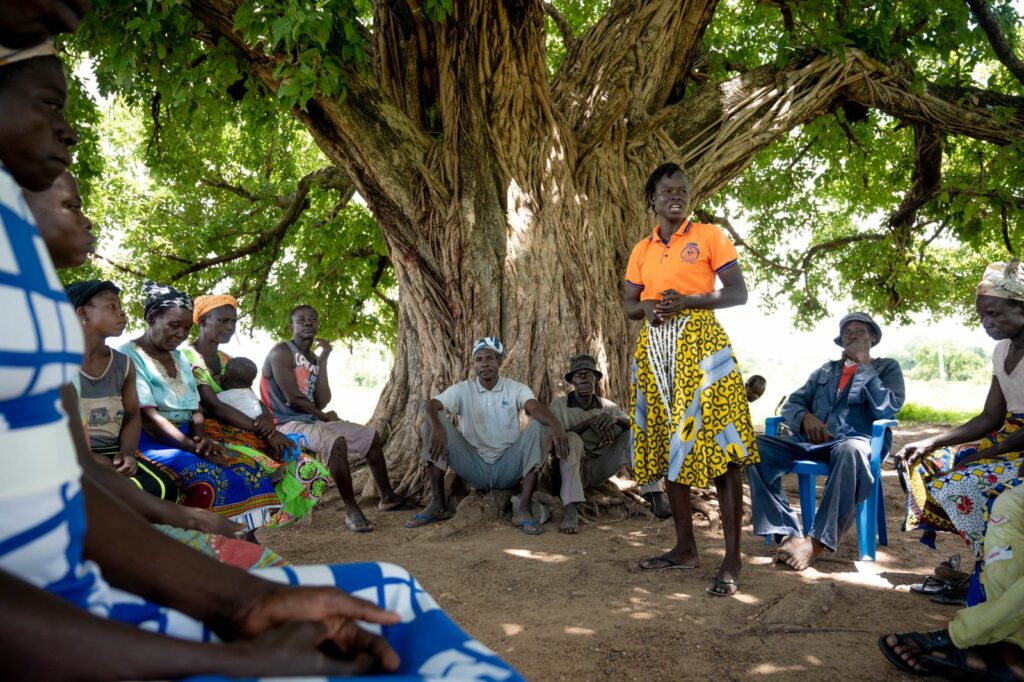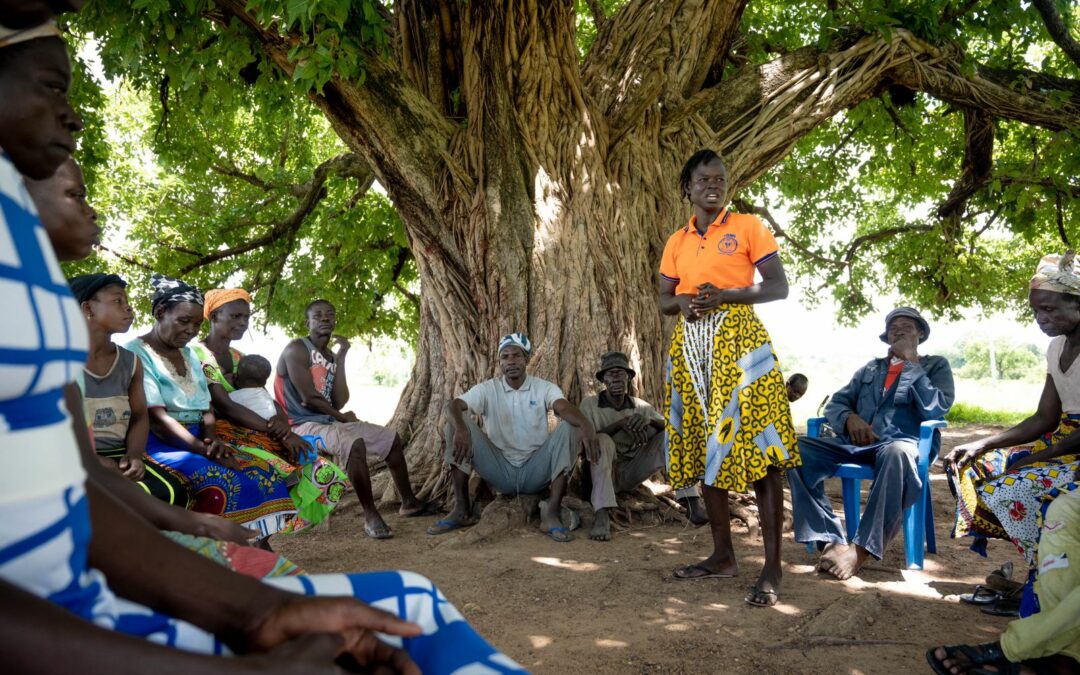Reflections by *Lamisi Awuni, a facilitator of the Gender Transformative Approach.
World Vision Ghana trained me as a facilitator for the Regreening Africa project to train five communities in Bawku West District — including Adonsi, Googo, Widnaba, Farik and Nosqua — in three modules of its Gender Transformation Approach.
The training was part of **Gloria Kukurije Adeyiga’s gender research into the effects of the Approach on land-restoration outcomes.
My first thought was that this was another training in how to involve an equal number of men and women in a project’s activities. I was mistaken.
The training did not mention an equal number but instead facilitated a discussion about what men and women liked and disliked, what they wanted to change, and how they planned to change it.
I was excited but sceptical about how locals would receive this training because as someone who was born and raised in the area and was a social worker, I knew how deeply ingrained and set into our ways norms were: men provided and women served, period!
I was also curious about the connection between land restoration and discussions about improving household well-being. I’ve always wanted to do something to help women, so I jumped at the chance to train locals.
My confidence had grown following the training, so I went into the three communities aware of my own bias but open to stimulating frank discussions about the experience of men and women and how they could make each other’s experience better by making concessions.
My scepticism about impacting the locals, particularly men, was immediately challenged during my first training in the Adonsi community, when a man agreed to start fetching water for his household. That was quick, I thought. Not convinced, I made a mental note that if only I could follow this man for 22 months, I could see how true his words were. Through my dedication and hard work, the researcher chose me to assist her in monitoring the gendered indicators across the research landscape. My eyes were on the lookout for the man in Adonsi; it was my opportunity to see whether he kept his word.
 A man going to fetch water for his household. Photo: Regreening Africa/Kelvin Trautman
A man going to fetch water for his household. Photo: Regreening Africa/Kelvin Trautman
However, even before I had the chance to observe the man from Adonsi, I heard participating couples speak highly about the process in the other 12 communities where I did not train. After we monitored the indicators in the Gozeisi community, a woman approached me and asked when our next training was.
When I asked why she was asking, she said, ‘After the training, my relationship with my husband has changed. My husband now talks to me about things, gets water for the house, and even bathes our children. I, too, have changed my ways and now occasionally assist in bringing the animals back from grazing. There is now peace and happiness in my home.’
Another woman in the Googo community told me, ‘Madam, my husband gave me money to do business after our training but I’ve been asking him for money to trade for many years and he says he has no money to give. Now, when I go to the market or I am busy, he will fetch water and even cook for me.’
 A man preparing a meal for his family. Photo: Regreening Africa/Kelvin Trautman
A man preparing a meal for his family. Photo: Regreening Africa/Kelvin Trautman
I also ran into the man from Adonsi who piqued my interest in the first place and I decided to question his wife about his commitment.
She smiled broadly and said, ‘Look at me, I’m a happy woman now. I’m not sure how you managed to persuade my husband to do things I’ve been trying to persuade him to do for years. Our relationship is now open because he informs me of his whereabouts and fetches water for the household and I have also helped him purchase the necessary farm inputs this season.’
I could tell she was genuinely happy and her words echoed what I had seen during the monitoring. I was now convinced that the Approach had been well received and that positive changes were taking place.
I reflected on how this Gender Transformation Approach could accomplish so much in such a short period of time when we (development people) had been attempting to get men and women ‘talking and planning together’ through various projects with little success.
I realised that the Approach’s three modules captured the essence of gender norms in order to foster reflection without judgement and an environment in which people could practise how they felt about change before committing to it. It was almost as if the participants tried the fruits and then decided to grow them. I also believe that the intervention’s research design allowed for iterative review and feedback throughout the process. Community champions engaged households and mediated or assisted them in navigating difficult subjects on a continuous basis. Community champions also met with the researcher on a regular basis to review the process, brainstorm and navigate sensitive and challenging subjects, providing another opportunity to calibrate and provide feedback on the Approach. Indicator monitoring provided participants with an additional forum to discuss what was working and how to sustain these changes as well as how to navigate challenges. This, in my opinion, was the key to the success of the Gender Transformation Approach.
 A Community facilitator interacting with households in Ghana. Photo: Regreening Africa/Kelvin Trautman
A Community facilitator interacting with households in Ghana. Photo: Regreening Africa/Kelvin Trautman
I’ve been paying close attention to discussions about what concessions men and women have made in the gender research from July 2020 to January 2022 to improve communication between couples and, in some cases, co-wives. But it is the Approach’s influence on women’s access to homestead farms that has most impressed me. This, in my opinion, is the most significant result because women traditionally cannot inherit land (held tightly by men), are responsible for a wide range of household chores (cooking, cleaning, child and adult care, washing, fetching water and firewood), and were frequently overburdened in the farming season traversing between family farms on homesteads and own farms outside communities and transitioning to household chores at the end of the season.
The success of the Gender Transformation Approach across the landscape has piqued the interest of others and I am pleased to learn that World Vision Ghana is scaling out an adapted version of the interventions across its implementation sites. After seeing the results and being a part of the process, I believe that the Approach truly represents a more effective way of addressing the root causes of gender inequity and that with continued action and support, land-restoration outcomes will be influenced by ensuring all perspectives are captured in land decisions.
This process has deepened my understanding as a woman that, while men may appear to be favoured in traditional norms, they are frequently burdened by gender-based demands. Going forward, I am confident that the Gender Transformation Approach will have a long-term impact on how I use gender interventions in my work as a social worker.
*Lamisi Awuni is an environmental health officer with the Bawku West District Assembly who has been working in the district for 12 years. Occasionally, she works as a field facilitator for World Vision Ghana.
**Gloria Kukurije Adeyiga is a research scientist with the Forestry Research Institute of Ghana, researching the influences of gender transformative approaches on land-restoration interventions for her PhD as part of the Regreening Africa, Ghana project.
This story was produced with the financial support of the European Union. Its contents are the sole responsibility of Regreening Africa and do not necessarily reflect the views of the European Union.

